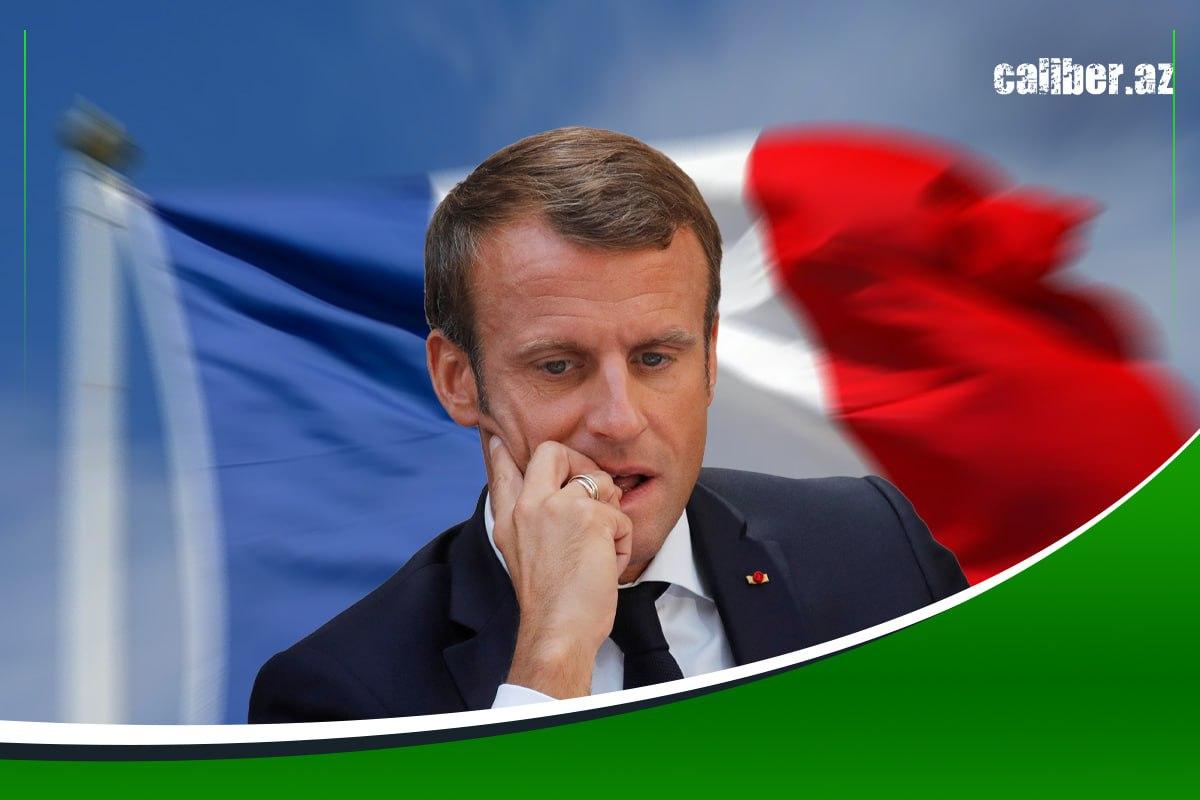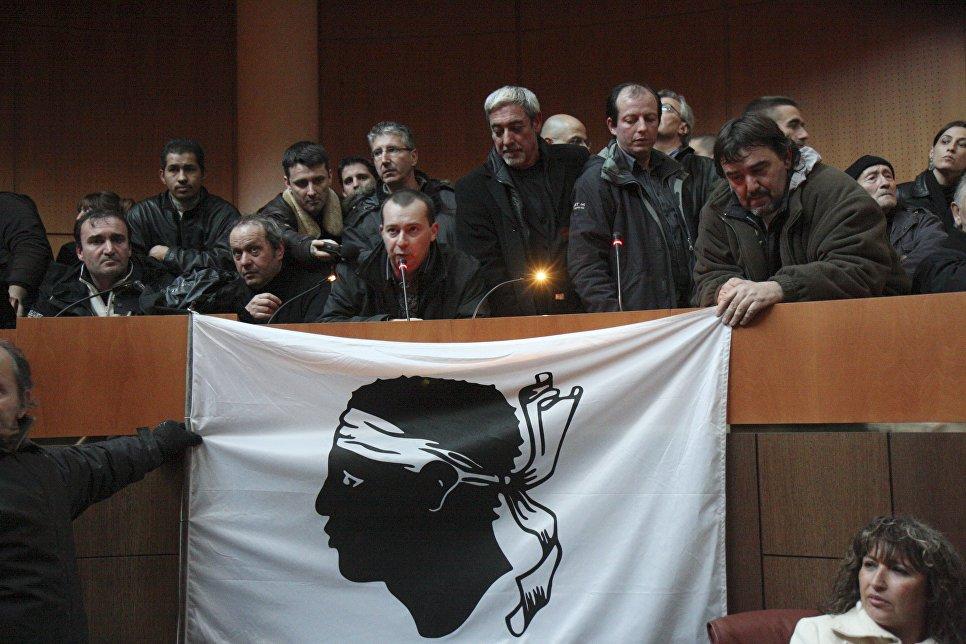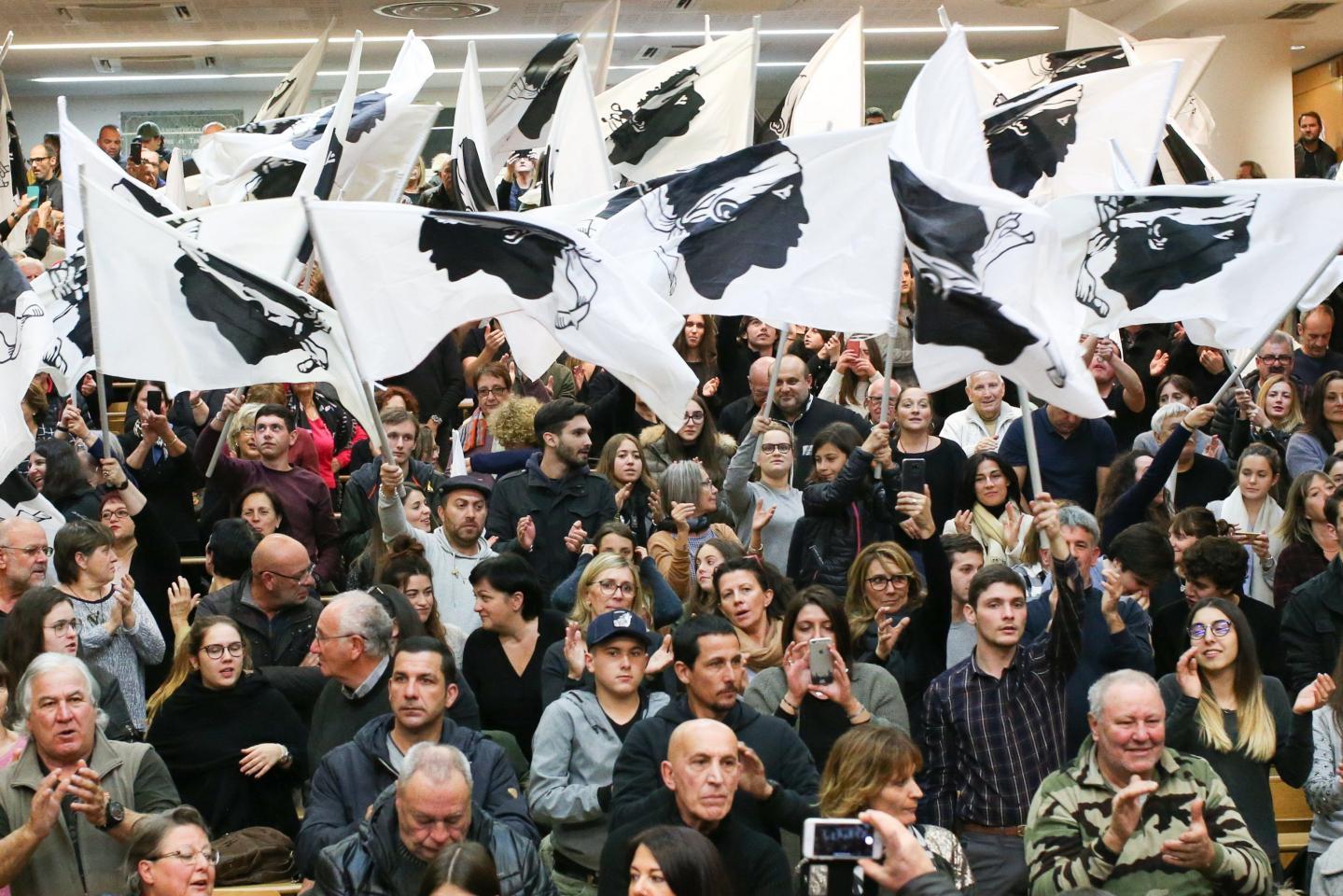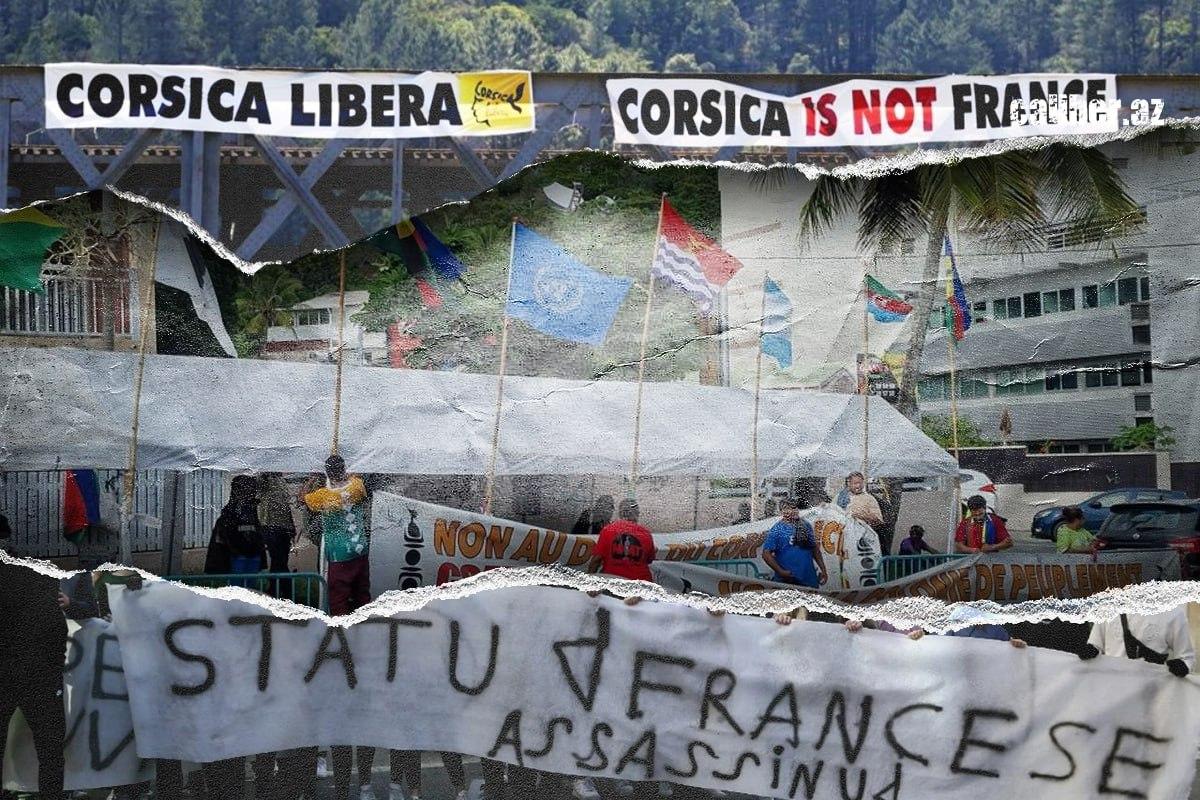France and Corsica have no common destiny "The Island of Beauty" breaks free
The decolonization of French territories is expanding its reach. Following the uprising of the Kanak people, the Corsicans are once again decisively asserting their national rights.
A new threat from the French mainland
Earlier this week, the mayor of the Corsican town of Poggio-di-Venaco, Jean-Marc Rodriguez, stated, "Corsica should take New Caledonia as an example and prohibit citizens who have lived on the island for less than 10 years from participating in elections." According to Rodriguez, those who come to Corsica from mainland France particularly threaten the national identity of the local population when they manage to infiltrate the island's government bodies.
The cause for concern among Corsican patriots was the alarmingly high result of the French far-right during the recent parliamentary elections on the island. The native Corsicans fear that the increasingly powerful far-right in government will intensify the policy of assimilation and colonization of the local population. For instance, in the 1st district of Upper Corsica, Jean-Michel Marchal, a representative of the far-right National Rally, advanced to the second round with 28.8% of the votes, trailing the favourite, Michèle Castellani, from the largest Corsican autonomist party Femu a Corsica (Let's Make Corsica), by less than 2%.
In Southern Corsica, two candidates from the National Rally were in first place in the first round, with 31.2% and 36.1% of the votes, respectively. Ultimately, in Southern Corsica, the victory went to a candidate from the second largest autonomist party, Partitu di a Nazione Corsa (Party of the Corsican Nation), and a representative of the pro-presidential party. In Upper Corsica, one seat was won by an MP from the autonomist party Femu a Corsica, but in the second district, the Corsican nationalists lost their seats. Here, the candidate from the Miscellaneous right (Divers droite) list won with the support of the far-right National Rally (26% to his own 34%). Additionally, in three out of four districts, the victorious candidates were closely followed by French nationalists who took second place. Notably, three of the National Rally candidates had no roots in Corsica.
Corsica: Island of paradoxes?
Equally astonishing is that during the 2022 presidential election, the leader of the French far-right, Marine Le Pen, received the most votes on Corsica—58%. This is despite Marine Le Pen's strong opposition to the island's autonomy. Many experts consider this a protest vote against Macron. However, it is also important to note that the residents of agrarian Corsica, where over 96% of municipalities are rural, still largely exhibit extremely conservative attitudes. There is also a susceptibility to the sophisticated demagoguery of the French right-wing populists, who essentially continue the course of colonizing the island.

Nevertheless, Corsica did not elect a member of parliament from Marine Le Pen's party, unlike many other constituencies. However, the challenge from the French far-right on the island, known for its distancing from Paris, has mobilized Corsican patriots.
"Corsican Patriots, Unite!"
"There is a need to strengthen the nationalist movement," concluded Pascal Zagnoli, the general secretary of the left-wing nationalist Party of the Corsican Nation (PNC), immediately after the elections.
Activists from the group Manca published a press release stating, "The presence of local neo-fascist movements remains a reality that cannot be underestimated... Their themes (immigration, security, Islamophobia, rejection of ecology) have permeated the political discourse even among Corsican nationalists." At the same time, there are significant contradictions between the various Corsican nationalist groups. According to the activists, Corsica today has been turned into a tourist appendage of French capitalism.
Xenophobic and Islamophobic rhetoric resonates well with various electoral groups in crisis-stricken French society—as a sort of "painkiller." For example, among those who vote for the far-right party Reconquête led by Éric Zemmour in Corsica, 45% support not just autonomy, but full independence for Corsica. In response, calls for the unification of all nationalist forces have intensified within the "family of Corsican nationalists." Pascal Zagnoli, the leader of the Party of the Corsican Nation, has already called on all Corsican patriots to unite. His call has been supported by François Martinetti, the national secretary of Femu a Corsica, another major Corsican party. Paul-Félix Benedetti, the leader of the party Core in Fronte (Heart Forward), also advocates for unity. A unification "round table" of Corsican nationalist forces is planned for the summer.
Corsican patriots also hope to involve left-wing forces in this process (indeed, many of them are already left-wing nationalists) as well as some centrists who sympathize with the Corsican cause.
The new Corsican Nation movement is also willing to join the process. However, its activists seem to take a more radical stance towards the French mainland. The movement states, "We will present our proposals, such as including Corsica in the list of non-self-governing territories of the UN that are subject to decolonization, or implementing a project for a complete overhaul of the electoral process in Corsica." Unlike their "senior colleagues," Nation opposes the so-called "Beauvau process," referring to the relatively recent attempts initiated by President Macron to once again resolve issues with Corsica.
Macron's dance with the constitution
The French government is increasingly compelled to reckon with the Corsicans' struggle for their rights. In 2018, it had to grant Corsica special status as a "territorial community." By this time, the underground Corsican National Liberation Front (FLNC) had ceased armed actions in favour of peaceful work. However, in 2021, the FLNC announced the possibility of resuming military operations, citing France's failure to meet the terms of the agreement. Armed men in masks then issued a warning: "We clearly state to the French state that if its policy of contempt continues, we will resume, perhaps with even greater determination than in the past, the night battles that we know so well." Today, the streets of Corsican cities once again feature many graffiti supporting the FLNC and its emblem—a Moor's head with a white bandana.

In the 2021 elections, however, the Corsican national movement experienced a split between moderates and radicals. These disagreements are also attributed to the intrigues of President Macron. Despite the lack of a unified list, Corsican patriots once again won a majority in the local assembly.
In March 2022, there was an attack in prison on former FLNC militant Yvan Colonna, who was serving a life sentence for the murder of a French prefect in 1998. After spending three weeks in a coma, Yvan Colonna died without regaining consciousness. Yvan was killed by an Islamic fundamentalist, but many believed it was a premeditated assassination. In response, Corsica was engulfed in mass riots, accompanied by attacks on the police. Large demonstrations took place on the island with slogans such as "French state—murderer!" and "Down with the French!" President Macron was forced to personally visit the island, and on September 28, in his speech at the local legislative assembly, he promised Corsica autonomy and equal status for the Corsican language. In his characteristic style, Macron delivered many grandiloquent words and toasts to both the Republic and Corsica.
But it's not that simple. First, the word "autonomy" does not appear in the French Constitution, and the basic law will have to be specially amended for Corsica. Second, Macron has made promises to the Corsicans before, only to later retract them. During his first presidential election campaign in 2017, Macron vaguely hinted at amending the Constitution "to develop Corsica's potential." However, by the next year, 2018, French officials were declaring that there would be no "autonomy." Macron made another round of promises for Corsican autonomy in 2022, not only under the pressure of mass protests on the island but also on the eve of his new presidential election. Will Macron fulfil his promises this time?
And already in January this year, the French police arrested two activists of the newly formed Corsican movement Nazione. The arrests were carried out with the use of force, and the detainees were taken to Paris. In response, a protest rally was held in Corsica, attended by the mayor of Bastia and other local government officials. The Baku Initiative Group (BIG) condemned the unlawful detention of Corsican activists by the French police.
Details of the "autonomy" that Paris now seemingly intends to grant Corsica have been revealed. French Minister of the Interior Gérald Darmanin, overseeing this process, stated that Corsicans will not be recognized as a separate people; instead, Corsica will be referred to merely as a "cultural community." In Paris, there is a significant fear of dividing the island's residents into native Corsicans and those who arrived later, including French and other migrants. In response, the underground Corsican National Liberation Front (FLNC), still active, declared that the refusal to recognize the Corsican nation once again shows that France and Corsica "have no common destiny."

In anticipation of further commemorations marking the anniversary of Ivan Colonna's death in March this year, additional personnel from French intelligence services were deployed to Corsica.
Unity as a chance for decolonization
Today, the majority of Corsicans support granting autonomy to the island — 72%, but the number of supporters of full independence is rapidly growing. In 1989, they constituted 18%, while by 2022, they had risen to 35%. Likely, the general crisis in France and the EU is fueling protest sentiments in various forms, including the popularity of national liberation movements. Many formal supporters of autonomy view it as merely the first step towards achieving independence.
The current composition of the Corsican legislative assembly reflects the existing balance of power in society. Out of 63 seats in the local National Assembly, 32 belong to Femu a Corsica, 8 to the Party of Corsican Nation, both of which advocate for the island's autonomy. Additionally, 6 seats are held by the Core in Fronte (Heart Forward) party, and one seat by Corsica Libera (Free Corsica). Both Core in Fronte and Corsica Libera advocate for full independence of the island. Only 17 out of 63 MPs represent right-centrist orientations aligned with the Parisian metropolis, including Republicans and others from the Un Soffiu Novu (New Breath) group.
The conservatism within part of the Corsican electorate is also evidenced by the presence of representatives of such exotic movements as Bonapartism within the Un Soffiu Novu group, reflecting Corsica's historical ties to Napoleon Bonaparte, who was born on the island.
Many Corsican leaders continue to critically assess Paris's promises of granting autonomy to Corsica. In 2023, during a speech at the international conference "Neocolonialism: Violation of Human Rights and Injustice" in Baku, Jean-Marc Rodrigues stated, "After the occupation, France imposed numerous restrictions on Corsica. For example, they forbid us from practising our traditions. France turns a blind eye by constantly assigning Corsica some new status. However, this does not make us free. Paris merely promises to take our demands into account. Yet, in reality, none of them are fulfilled."
Corsica, a strategically important island in the Mediterranean Sea, hosts various units of the French armed forces, including the 2nd Foreign Parachute Regiment of the Foreign Legion and the naval base in Aspretto.

It seems that the ruling French elite is exploring new ways to maintain control over Corsica. From flirting with autonomy to betting on right-wing populism, the current phenomena in France evidently increase the popularity of both left-wing and right-wing radicals, a trend likely to exacerbate further. Corsica itself exhibits its own specifics, with strong traditionalist and autonomist sentiments. The political project of the "French far-right" on the island is adapted to these characteristics, aiming to redirect dissatisfaction from French colonization towards migrants in general. However, the recent process of uniting Corsican national forces must provide a worthy response to this challenge. Considering that on the other side of the world, New Caledonia is also intensifying resistance against French neocolonialism, France may indeed face "interesting" times in the coming years.
The views and opinions expressed by guest columnists in their op-eds may differ from and do not necessarily reflect the views of the editorial staff.








